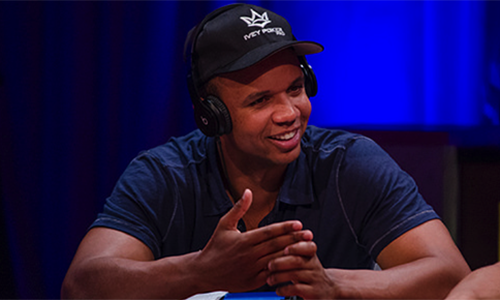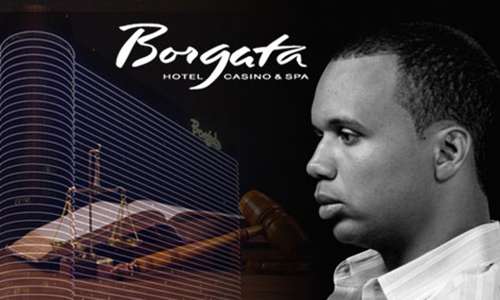Borgata, Ivey Attorneys Spar Over Case Precedents in NJ Appeal
Counsel for professional gambler Phil Ivey and Atlantic City’s Borgata Hotel Casino & Spa are continuing their legal battle in a New Jersey appellate court over the $10.13 million “edge sorting” judgment awarded to the Borgata in late 2016. In recent developments, the two sides have offered opposing takes on existing legal precedent under New Jersey law while opinion on what impact such precedent, or lack thereof, has on the ongoing appeal.
The latest developments are an offshoot of last week’s oral arguments hearing before the US Third Circuit Court of Appeals. After New Jersey’s Division of Gaming Enforcement (DGE) and Casino Control Commission (CCC) declined to provide the appellate court with briefs describing the possible legal framework into which the Ivey-Borgata dispute might fall, the appellate judges invited both sides to submit known cases in which the likely applicable New Jersey gambling law, N.J.S.A. 5:12–115(a), played a role in deciding the case.
 Counsel for the Borgata was first to respond to the appellate court’s request. First, Borgata counsel Jonathan Massey quoted a key section of that New Jersey code. “Section 115(a)(2) makes it unlawful,” he wrote, ‘[k]nowingly to deal, conduct, carry on, operate or expose for play any game or games played with cards, dice or any mechanical device, or any combination of games or devices, which have in any manner been marked or tampered with, or placed in a condition, or operated in a manner, the result of which tends to deceive the public or tends to alter the normal random selection of characteristics or the normal chance of the game which could determine or alter the result of the game.'”
Counsel for the Borgata was first to respond to the appellate court’s request. First, Borgata counsel Jonathan Massey quoted a key section of that New Jersey code. “Section 115(a)(2) makes it unlawful,” he wrote, ‘[k]nowingly to deal, conduct, carry on, operate or expose for play any game or games played with cards, dice or any mechanical device, or any combination of games or devices, which have in any manner been marked or tampered with, or placed in a condition, or operated in a manner, the result of which tends to deceive the public or tends to alter the normal random selection of characteristics or the normal chance of the game which could determine or alter the result of the game.'”
The Borgata’s focus here are the phrases “operated in a manner” and “to alter… the normal chance of the game”, which could rightly be used to describe the exact intent of the edge-sorting scheme employed by Ivey and co-appellee “Kelly” Cheung Yin Sun.
Further, Massey argued, the code was already applied in a 2014 New Jersey case. In Houck v. Ferrari, the court cited and touted that code in finding against some blackjack players who took part in “hole-carding”, meaning to go to great lengths to get a peek at the dealer’s down card in blackjack, then adjusting their bets accordingly.
According to Massey and the Borgata, hole-carding “was prohibited by the New Jersey Casino Control Act and thus that the Act’s immunity provision applied to the casino and its employees in the patrons’ false imprisonment action brought after they were detained and questioned in the casino.” Massey added, “The court then opined that hole carding ‘can certainly constitute a ‘scheme’ in Section 113 and an alteration of ‘the normal random selection of characteristics or the normal chance of the game’.”
One day later, Ivey’s New Jersey attorney Louis M. Barbone filed his own brief in response to both the judge’s invitation and to Massey’s citation of the 2014 blackjack case. Barbone did not cite any other cases with a ruling invoking the New Jersey gambling code but did mention another suit, Doug Grant, that was dismissed for reasons that Barbone asserts should’ve invalidated the reasoning used by the initial judge, Noel L. Hillman, in the late 2016 Ivey-Borgata ruling.
Noting that Judge Hillman invoked the code regarding “a scheme” and “an alteration of the normal random selection of characteristics or the normal chance of the game”, Barbone then chose to spin that into an argument that the Borgata shares responsibility for Ivey’s win by acceding to his demands and allowing conditions which effectively altered the odds of the mini-baccarat being played. Barbone wrote, “As recognized in Doug Grant, where the rules of the game are being followed, the normal chance and randomness of the game cannot be manipulated.”
How that plays out when evaluated by the appellate panel remains to be seen. The solo live report emanating from last week’s hearing declared that the appellate judges noted the Borgata’s willingness to go along with Ivey’s requests, though part of Judge Hillman’s logic n the 2016 decision was that because of Ivey’s requests actually having an odds-shifting intent, it constituted the creation of a new game not covered by New Jersey gambling law. Because of that, the gambling had to be be unwound, with the two sides to be returned to their starting point and Ivey’s $9.6 million “win” (plus some adjustments) returned to the Borgata. Barbone’s interesting claim seems to argue sideways to Judge Hillman’s case-determining logic, though it will be the appellate panel’s task to verify which line of thought is correct.




















COMMENTS